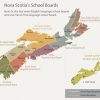This event will feature a talk by Arnold August, author of Cuba – U.S. Relations: Obama and Beyond, followed by a panel discussion. The panel members include Don Foreman, Executive Member of Canadian Network on Cuba and 35-year activist with CUPW (Canadian Union of Postal Workers), and Errol Sharpe, Publisher, Fernwood Publishing (Halifax).
All are welcome to this event.
Author royalties from books sales at this event will be donated to the Canadian Network for the Cuba Hurricane Irma Recovery Fund.
A Glimpse of What to Expect on March 15 at the Halifax Book Event.
An excerpt from the Foreword by Dr. Keith Ellis to CUBA–U.S. RELATIONS by Arnold August
Keith Ellis. Born in Jamaica. Professor Emeritus, Department of Spanish and Portuguese, University of Toronto, and Professor of Merit. Doctor honoris causa from the University of Havana and the Order of Distinction from the government of Jamaica. He is a Fellow of the Royal Society of Canada.
“Arnold August brings to the task his finest gift, his superbly developed talent as a journalist, understanding this to mean the habit of assessing different aspects and representations of reality, so that he offers an ultimate fairness to the reasonable and humane reader. August constantly exhibits a related attribute: his remarkable power of analysis. The two together make the experience of reading him an enlightening
one.”
— Keith Ellis.
An Excerpt from the Introduction by Ricardo Alarcon de Quesada.
Ricardo Alarcón de Quesada was a member of the leadership of the 26th of July Movement in the clandestine struggle against the Batista dictatorship; Vice-President and President, Federation of University Students, 1959–62; Director, United States Desk, Ministry of Foreign Affairs, 1962–65; Permanent Representative of Cuba to the United Nations, 1965–78 and 1990–92; Vice-Minister of Foreign Affairs, 1978–90; Minister of Foreign Affairs, 1992–93; Deputy and President, National Assembly of People’s Power, 1993–2013.
“To put an end to the deception, rehabilitate the truth and help others understand the issues is a challenge that must be taken up with academic rigour and intellectual integrity, and this book by Arnold August makes a key contribution to the task. It is one of several bold and enlightening works he has written about the Cuban system and how it compares with those of its neighbours, including the United States. August’s works set him apart from the majority of authors who have covered these subjects, primarily because, in contrast with the typical approach of the so-called “Cubanologists,” he has declined to conform to a certain narrow vision that espouses U.S.-centric falsehoods and half-truths as dogma; and also because he has analyzed the Cuban experience from within, living in Cuba like just another Cuban and taking part in the daily life of the country — something that other observers have not even attempted. August comes to this task free of the prejudice and braggadocio that encumber the thinking of many who claim to interpret and judge Cuba from afar, without delving into its history.”
Co-sponsored by Canadian Network on Cuba (CNC) and the Nova Scotia Cuba Association.



